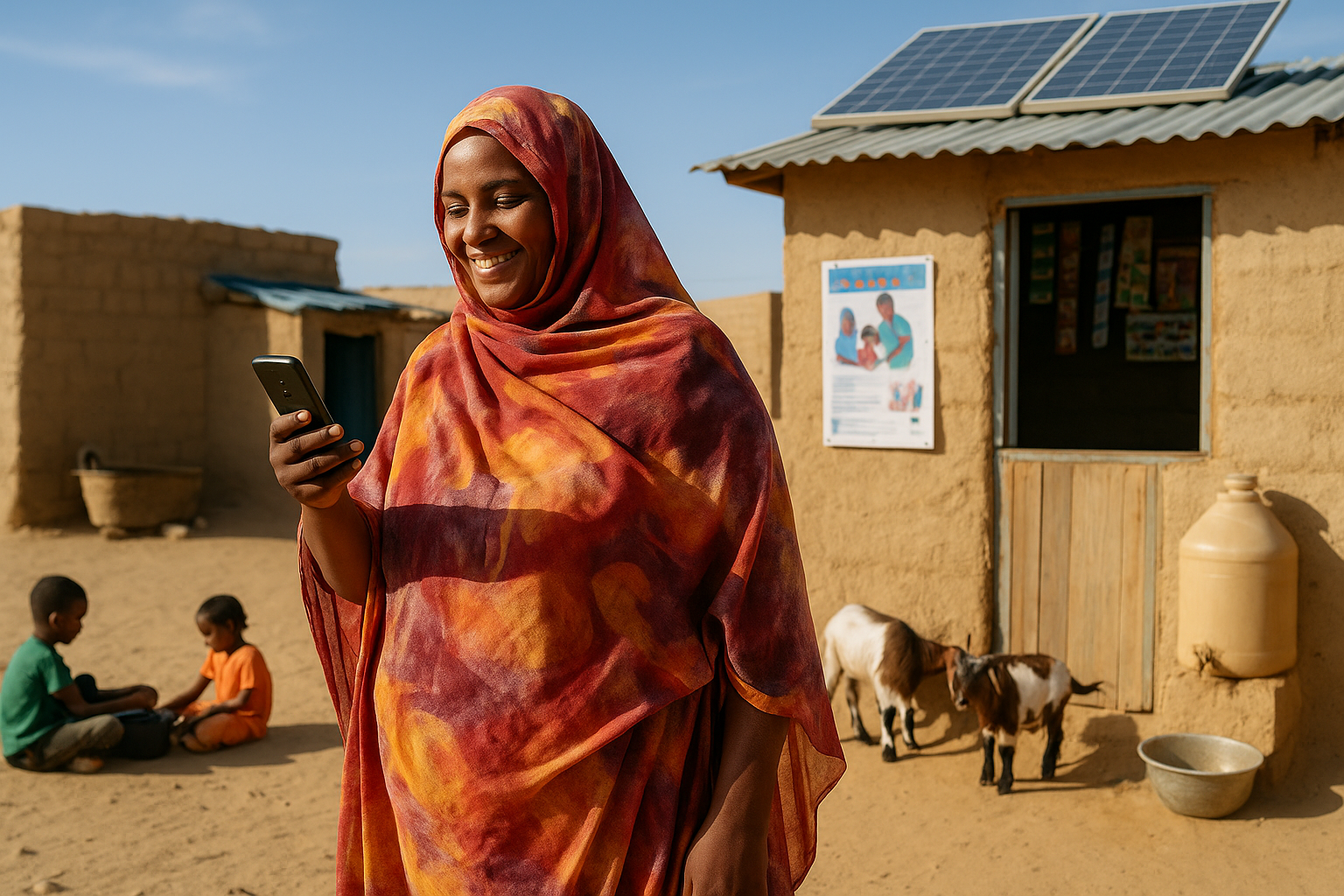Mauritania Maintains Stability, Boosts Social Reform Amid Slower Growth in 2024
Mauritania’s macroeconomic discipline, paired with forward-thinking reforms in social protection, places it in a strong position to foster inclusive and climate-resilient development.

- Country:
- Mauritania
The World Bank Group has released the eighth edition of its Mauritania Economic Update, offering an in-depth look at the country’s economic performance and social development trajectory. Despite a slowdown in growth in 2024, the report commends the Mauritanian government for preserving macroeconomic stability, improving social safety nets, and implementing reform-minded fiscal policies.
Growth Slows but Remains Above Regional Average
Mauritania’s economy grew by 5.2% in 2024, down from 6.4% in 2023, largely due to a reduction in extractive production—particularly mining output—and weakened public consumption. Nonetheless, this growth rate continues to outpace the sub-Saharan African regional average, signaling underlying resilience.
The government’s prudent fiscal management, falling food and energy prices, and tightened monetary policy contributed to lower inflation, improving household purchasing power and overall economic stability in a turbulent global environment.
Fiscal Consolidation Gains Ground
The report highlights Mauritania’s progress in narrowing the fiscal deficit through careful budgeting and policy discipline. The continuation of fiscal consolidation measures reflects the government’s commitment to financial sustainability, even as it expands support to vulnerable populations.
Urbain Thierry Yogo, Senior Country Economist at the World Bank, praised these efforts, noting:
“Mauritania should maintain the momentum of macroeconomic and structural reforms that will help diversify the economy and create productive jobs while protecting the most vulnerable against economic and climate shocks.”
Medium-Term Outlook: Opportunities and Cautions
Looking ahead, Mauritania’s medium-term growth outlook is favorable, with GDP expected to expand at an average of 4.9% over the next few years. However, the report cautions that commodity price volatility and climate risks remain significant threats.
To safeguard against these vulnerabilities, the World Bank urges:
-
Diversification beyond extractive industries,
-
Investment of mining revenues into agriculture, services, and infrastructure,
-
Continued improvement in public finance and governance systems.
Social Protection at the Center of Reform
A central theme of the 2025 update is social protection reform. Mauritania has made notable strides in shifting from generalized subsidies to targeted cash transfer programs, using tools like the national Social Registry to better identify and support vulnerable households.
While social assistance spending remains low—1.51% of GDP in 2022 compared to the regional average—the quality and coverage of programs are improving. The flagship Tekavoul program continues to deliver measurable benefits, reducing inequality and improving welfare outcomes for thousands of households.
Ibou Diouf, the World Bank Country Manager for Mauritania, stated:
“As Mauritania continues its commendable efforts to preserve macroeconomic stability, it is becoming increasingly important to strengthen the coverage, targeting accuracy, and efficiency of its social protection programs to ensure sustainable and inclusive development.”
Policy Recommendations: Toward a Resilient Social System
To build on current gains, the report outlines several actionable recommendations:
-
Update and maintain the Social Registry to reflect real-time socioeconomic conditions;
-
Improve targeting precision to reach the poorest households effectively;
-
Realign food subsidies with actual nutritional and income needs;
-
Strengthen institutional coordination via a unified platform and harmonized monitoring tools;
-
Develop “graduation strategies” to support long-term economic inclusion for beneficiaries;
-
Expand coverage of cash transfers and integrate them with other essential services such as education, health, and livelihood training.
Driving Inclusive Development
Mauritania’s macroeconomic discipline, paired with forward-thinking reforms in social protection, places it in a strong position to foster inclusive and climate-resilient development. The World Bank’s report serves as both a validation of Mauritania’s efforts and a policy roadmap for deepening the country’s development gains.
As global uncertainties persist, Mauritania’s ability to balance economic prudence with social equity will be critical—not just for maintaining stability, but for unlocking long-term, inclusive prosperity.










